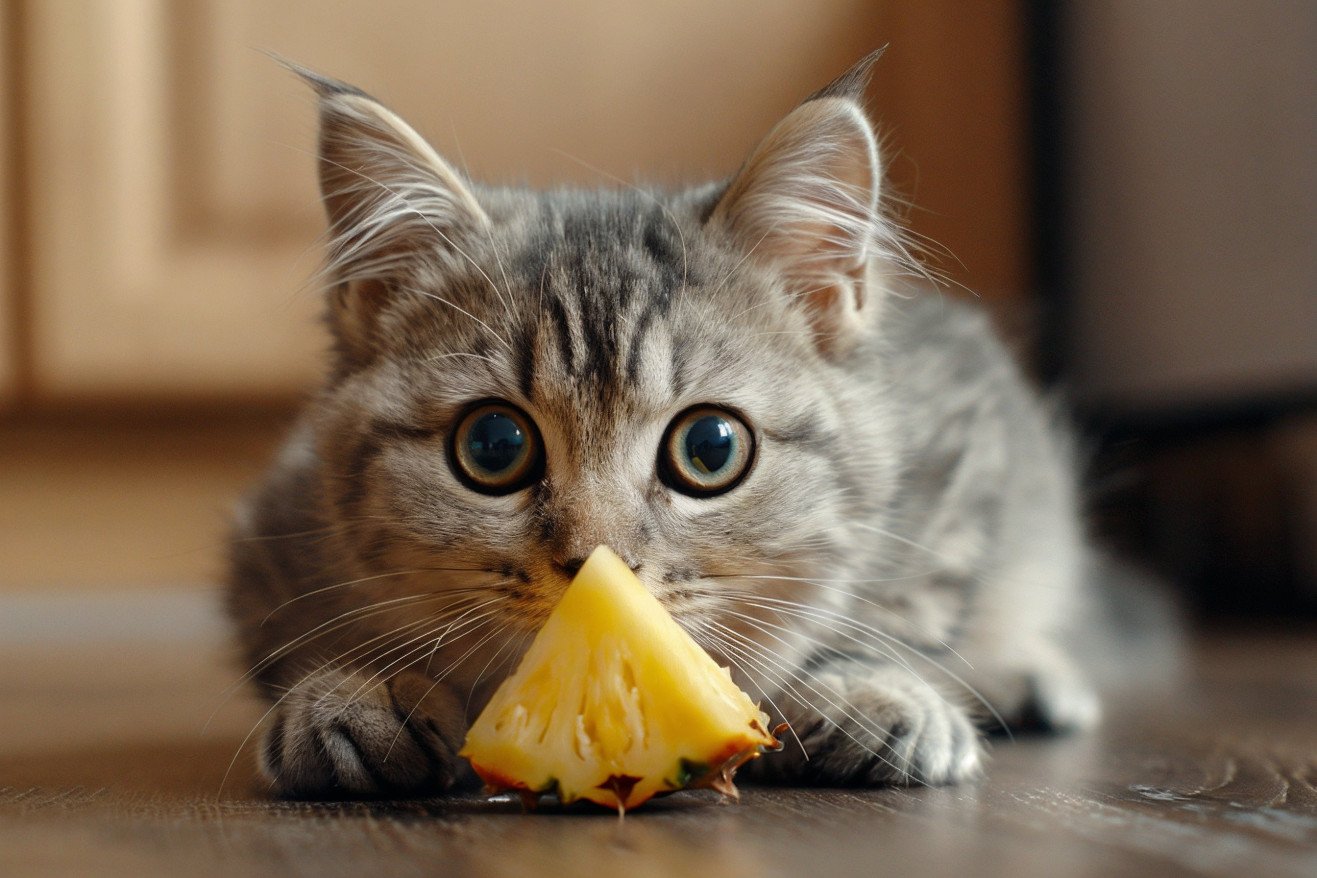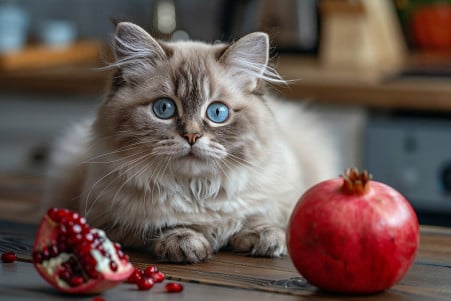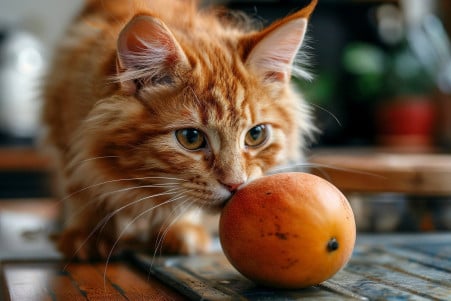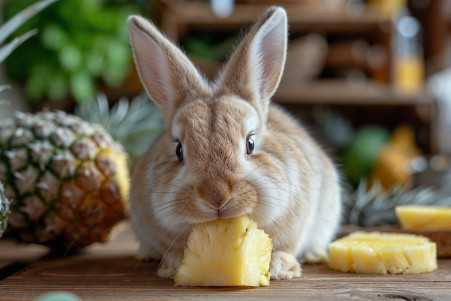Can Cats Eat Pineapple? What You Should Know
7 June 2024 • Updated 6 June 2024

Cats can be picky eaters, but does that mean they can enjoy a tropical treat like pineapple? While pineapple isn't toxic to cats, it's not recommended as a snack due to its high sugar content and tough, fibrous texture, which can lead to digestive issues like vomiting, diarrhea, and abdominal pain.
To help you better understand this thorny issue, we'll take a look at research by veterinary nutritionists, studies on the feline gastrointestinal system, and the nutritional and chemical makeup of pineapple. By the end of this article, you'll have a comprehensive understanding of why pineapple isn't good for cats and be able to make informed decisions about the treats and meals you feed your furry friend.
Can cats eat pineapple?
Pineapple Nutrition and Health Benefits for Cats
Pineapple does have some nutritional value for cats when consumed in small amounts. According to WhatAboutPets, pineapple is a good source of vitamin C, vitamin B6, and manganese. Meanwhile, the bromelain enzyme in pineapple can help cats digest their food more easily and reduce inflammation, which can be especially helpful for cats with gastrointestinal issues, according to WhatAboutPets. Pineapple is also high in fiber, which can help cats maintain a healthy digestive system and regular bowel movements.
That said, it's important to remember that cats are obligate carnivores, which means that the majority of their nutritional needs must be met by animal-based proteins. As a result, the nutritional value of pineapple is limited, and any potential benefits must be balanced with the risks of pineapple's high sugar content and tough, fibrous texture, which can cause digestive problems if cats eat too much of it. As a result, pineapple should be fed to cats in moderation, even if it's just an occasional treat.
How to Feed Cats Pineapple: Serving Sizes and Preparation
If you decide to feed your cat pineapple, it's important to make sure that you remove the skin, leaves, and core, as these parts can be hard for cats to digest and may lead to intestinal blockages. ThevVets says the leaves aren't toxic but the sap could irritate a cat's mouth and the tough leaves could cut their gums.
In addition, cats should only be fed fresh, raw pineapple, as Cornucopia Pet Foods explains that canned or processed pineapple often contains added sugars or preservatives that can be toxic. The pineapple should also be cut into small, bite-sized pieces to prevent choking and help with digestion.
Feed your cat a small amount, like a few small cubes or slices, at first and see how they react before feeding them more. Cuteness also says to look out for symptoms of an allergic reaction, such as drooling, swelling of the mouth, or vomiting. It's best to talk to a vet, especially if your cat has any health issues, before giving them pineapple or any other new food.
Potential Dangers and Symptoms of Pineapple Toxicity in Cats
Although pineapple is not toxic to cats, it can cause digestive upset, including vomiting, diarrhea, and stomach pain, if it is eaten in large quantities. Hepper notes that some cats may experience more severe gastrointestinal distress and allergic reactions, such as skin issues or digestive problems, if they are allergic to the compounds found in pineapple.
Pineapple has enzymes like bromelain and actinidain that may cause issues for cats who are sensitive to them, according to Greg.app. If a cat eats a large amount of pineapple, especially canned or sweetened pineapple, it can result in more severe gastrointestinal issues and even dehydration.
Cats should be watched closely for signs of discomfort or allergic reactions when they are first given pineapple, and the fruit should be discontinued if any negative symptoms are observed, according to Pet Insurance Review. It's a good idea to check with a vet, especially if a cat has any health issues, before giving them pineapple or any other new food.
Healthy Snack Options and Transitioning Your Cat's Diet
While pineapple can be a healthy snack for some cats, it's important to look into other healthy snack options that are better tailored to their dietary requirements. Per BeChewy, some healthy snack options for cats include cooked chicken, salmon, spinach, bananas, oatmeal, and small amounts of cheese or bread.
It's important to remember that when you're introducing any new food or snack to a cat, you should make sure to do it slowly and keep an eye out for any signs of digestive issues or allergies, according to PetMD. If your cat has been given pineapple as a snack, it's best to transition them back to their normal diet over the course of 7-10 days to make sure that you don't make any sudden changes that could lead to gastrointestinal issues, according to Hill's Pet.
It's always a good idea to talk to a vet, especially if your cat has any specific dietary restrictions or health issues, to make sure that you're transitioning them safely and healthily, according to the sources.
Wrapping Up: Key Takeaways on Cats and Pineapple
While pineapple is not poisonous to cats, due to its high sugar content and potential to cause digestive upset, it should be given in small amounts and only as an occasional treat. Since cats are obligate carnivores, they don't need pineapple or other fruits in their diet, and they don't get much nutritional value from them. If you do decide to give your cat pineapple, make sure to cut off the skin, leaves, and core and only give them fresh, raw pineapple in small, manageable pieces.
Keep a close eye on your cat for signs of discomfort, allergic reactions, or digestive issues when you give them pineapple, and stop giving it to them if you notice any negative side effects. Always talk to your vet, especially if your cat has special dietary needs or health concerns, before you make any big changes to their diet.


